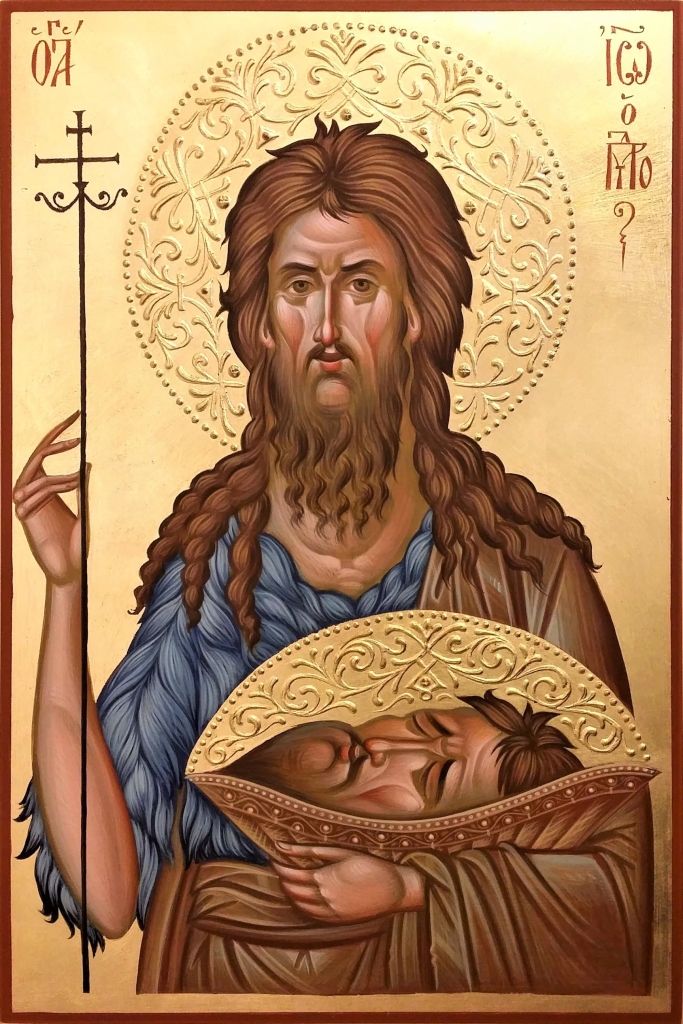Lectionary Readings for the Third Sunday in Advent, Year A: Psalm 146:4-9. Isaiah 35:1-10, James 5:7-10, Matthew 11:2-11
In the tradition of preaching about the Four Last Things, The Third Sunday in Advent, also known as Gaudete Sunday, coincides with the topic of Heaven. Gaudete is a Latin plural imperative, a commandment to “rejoice!”. This order is also an invitation into divine joy. Along with Laetare Sunday in Lent, Gaudete Sunday is one of two times in the liturgical year in which we don rose-colored vestments and experience brief spiritual respite near the halfway point of a penitential season.
As has been the case for Advent 1 and 2, Isaiah prophesies to us about the joy that comes with the First Coming of Christ, which we, in our own day, might also apply to his Second Coming: “Strengthen the weak hands, and make firm the feeble knees. Say to those who are of a fearful heart, ‘Be strong, do not fear! Here is your God. He will come with vengeance, with terrible recompense. He will come and save you'” (Isaiah 35:3-4). Here, yet again, Isaiah’s words overturn our expectations of what God’s coming will be like. We might expect God to arrive, bringing vengeance and fear in his midst, but, as Isaiah reminds us, God’s ultimate purpose is the work of salvation. Salvation is the impetus for Jesus’ assumption of our human nature and coming to earth, just as it is also the reason for his offering of himself on the cross. Through both his life and his death, Jesus opens the way to salvation (more on this in Lent!) for those who have already died in the Lord, for those who are alive, and for those who will come. The fact of God’s love and salvation is the cause for rejoicing across the ages.
Today’s reading from Matthew’s gospel offers a peculiar exchange between John the Baptist and his relative, Jesus. John has been imprisoned for criticizing King Herod and sends word to Jesus, asking whether he is actually the Messiah or if he should wait for the true Messiah to come. The strange part about this is that John the Baptist almost assuredly knows that Jesus is in fact the Messiah. As we established last week, John intimately knows that the purpose of his life, as prophet and forerunner of Christ, is to lay out a path that Jesus will step into. If this is the case, then what are we to make of John’s question? I tend to think of John’s examination of Jesus as a chance for Jesus to confirm his purpose and also let John know that he’s accomplished his purpose. Jesus sends word to the imprisoned John and his disciples: “‘Go and tell John what you hear and see: the blind receive their sight, the lame walk, the lepers are cleansed, the deaf hear, the dead are raised, and the poor have good news brought to them. And blessed is anyone who takes no offence at me'” (Matthew 11:4-6). If we’re familiar with the stories told of John the Baptist in the gospels, we know that he will not live to see the fullness of Jesus’ ministry, but we also know that he still powerfully witnesses to Jesus’ light and to God’s righteousness in front of the seat of power, even in the face of death. John the Baptist may not have seen the resurrection in his own day, but we know that he is both loved and saved by God, just as we are.
Jesus’ message effectively confirms the following sentence for John: “Yes, I am the Messiah, and just as you did, I am doing the work that I was sent here to do.” John the Baptist is to us prophet, baptizer, forerunner, witness to Christ, and faithful example. John submits everything, including his life, to preparing the way for Jesus; he fundamentally knows that he is not the Messiah and, as the gospel passage for his feast day reminds us, knows that fulfilling his purpose means that “[Jesus] must increase and [he] must decrease” (John 3:30). This is why Jesus says both that no human who has ever been born is greater than John the Baptist and that John the Baptist is least in the kingdom of heaven. As worshippers of God, we have much to learn from John about humility, service, works, and true commitment to loving God and speaking truth to power.
May we give thanks for the prophecy, witness, and example of St. John the Baptist and prepare the way for Jesus’ arrival in our hearts. Rejoice in God’s love and salvation, fellow servants and children of God, as we await Christ’s coming, until that day where, with the Blessed Virgin Mary, St. John the Baptist, and all God’s saints, we rejoice in the kingdom of heaven.

Byzantine-style Orthodox icon of St. John the Baptist, holding his own head. Date and artist unknown.